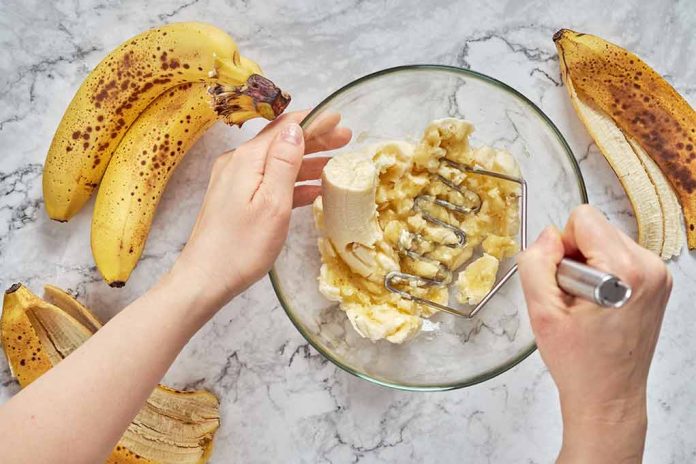(HealthyExaminer.com) – Did you know that the average family of 4 wastes approximately $1,600 annually in unused produce? Research has shown that 25% of the food purchased in the United States is simply thrown out. That’s a lot of food going into the garbage! Reducing food waste is good for the environment and your budget.
How to Use Overripe Fruit Safely
The fruit you grow or purchase can go from ripe to overripe in the blink of an eye. You might be tempted to throw it out, but you might be surprised to learn that there are numerous ways to use overripe fruit safely. To get started, cut away bruised or damaged areas to avoid dangerous food-borne bacteria that could cause illness. Then, choose which fruit transformation most appeals to you!
Turn Overripe Fruit into Jam
Fruit that’s getting overripe can be made into an easy jam you can store in your refrigerator. This will allow you a little more time to use overripe fruit safely without wasting it. Peaches, cherries, and other fruits can make a small batch of delicious jam.
Freeze for Later
The fruit you assume is going bad could still be frozen and used as an ingredient in a delicious, healthy smoothie – even if it isn’t as pretty as it was when it was fresh. Freeze berries in ice trays to add to drinks at a later time. You can even use it to make frozen popsicles by blending overripe fruit and freezing it.
Heat Them and Eat Them
One novel way to avoid food waste with overripe fruit is to heat them in the microwave and eat them. Consider cutting them up and adding cinnamon, and you might have a delicious treat from your overripe fruit in a matter of minutes. Pears, bananas, and many other fruits could become a sweet treat when you add heat and a spice or two.
Roasting overripe fruit in the oven and adding it to a grain bowl is another healthy way to prevent food waste. You can also create your own fruit leather by using a food dehydrator or even right in your oven.
Tomatoes are often mistaken for a vegetable but are actually classified as a fruit. When they begin to get wrinkly and overripe, consider turning them into sun-dried tomatoes instead of throwing them out. Heat them in the oven on low heat to achieve “sun-dried” perfection! You can then store them in an airtight container for up to a month.
Transform It Into Bread
When fruit becomes overripe, it softens, making it perfect to mix into a bread recipe. Bananas are commonly used in bread, but you can do this with peaches, mangoes, kiwis, strawberries, and more!
Use It as a Baking Substitute
Some overripe fruit like pureed bananas, pumpkins, and apples can be used as a substitute for eggs or oil in recipes. Using them in a brownie, cookie, or muffin recipe can even add a touch of sweetness and a little added nutritional value. Plus, you’ll reduce your waste when you let the fruit that’s starting to go bad become a substitute in your recipe.
Top It Off
Overripe fruit can be transformed into a sauce, chopped up to use as a fruit topping, or even made into a salad dressing. The piece of fruit that doesn’t look good enough to eat may actually be perfect served in a different way or in a different form.
Drink It Up
Turn overripe fruit into fruit juice. Cut away bruised or damaged areas before blending to avoid dangerous food-borne bacteria. Turning your fruit into juice could be a way to help it last a little longer even though it’s become overripe for eating.
Know the Difference Between Overripe and Rotten
Overripe fruit can be safely used in many ways, but rotten fruit can never be rescued. Overripe fruit smells and will still taste sweet. Rotten fruit, on the other hand, will smell sour as it begins to ferment. Rotten fruit should be thrown out to help avoid food-borne illnesses.
Moldy patches on fruit don’t necessarily mean fruit is rotten. It may still be safe to eat if you remove the moldy part. Cut about an inch around the mold. Don’t allow the knife you’re using to come into contact with the mold to prevent cross-contamination.
A general rule is “When in doubt, toss it out.” Keep in mind that overripe fruit will taste and smell sweet, and rotten fruit will taste and smell sour. Before you toss out that piece of fruit that seems to be going bad, stop and consider if it could have another use. You’ll save money, reduce food waste, and give yourself a little more time to enjoy your produce.
Copyright 2023, HealthyExaminer.com














